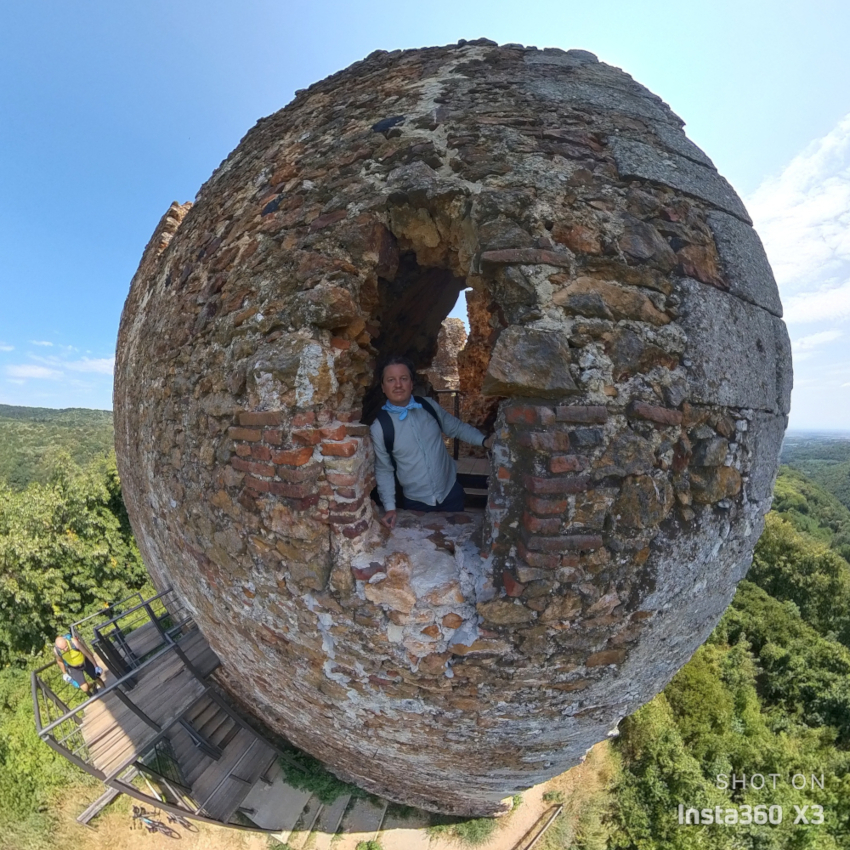

I am a software engineer living and working in Belgrade, Serbia. My hobbies contain a lot of things including cycling, bikepacking, photography. My political view are closer to left-wing anarchism.
All the photos are made by myself (if not specified other) and are shared under CC-BY 4.0.
- 4 Posts
- 25 Comments


There are petabytes of collected data (even in a relatively small ad-tech companies I had a chance to work on; on a facebook/google scale it is much more). Someone should write all the cleaning, processing, de-duplication and matching (aka fingerprinting) steps as well as make this data usable by AI / Machine Learning guys, who will make models that predicts what ad to show to each user based on the available data. I’m working on processing, cleaning, matching and preparing of these data.


- •
- bsky.app
- •
- 6M
- •


Yes. For me reasons of VPN on Android (even with Google) are following:
- Most of greedy apps are trying to collect info about your location. Because in most of the cases you will restrict direct access to the location data, apps will try to do it through IP. VPN resolve this problem at all.
- A lot of greedy apps or websites are trying to do fingerprinting to identity your logs. While it is possible in theory to do fingerprinting by fuzzy matching all-logs against all-logs, the task is so computationally heavy that the only way is to try to do fuzzy-matching (aka fingerprinting) within the locations. VPN allows you to hide your location.
Of course one may say that VPN does not provide a 100% protections from fingerprinting, I think there should be applied the same approach like in cyber security: the goal is not to protect yourself by 100% but to make attack so expensive that it does not make sense. VPN makes fingerprinting so hard that noone will really do it until you are a journalist, intelligence officer or something like this.


As I understood, the main concern is that such a hyper fast eye gaze is similar to the psychosis and social anxiety disorder where individuals hold irrational beliefs or preoccupations with the idea of being watched.
Our finding that sensory processing of gaze direction is facilitated by the act of being watched is consistent with evidence suggesting top-down cognition can influence the earliest stages of gaze processing (Teufel et al. 2009). Also, eye-tracking studies indicate that a social presence can significantly alter where attention is allocated (Risko and Kingstone 2011, Nasiopoulos et al. 2015). In light of our findings, an enhanced and specific allocation of attentional resources towards self-relevant social information seems plausible. Importantly, our results rule out that being watched leads to a non-specific attentional boost, as non-face stimuli did not benefit from this effect; instead, our results support the idea that this is a specific effect directed towards face information. This is consistent with clinical observations of social-specific attentional biases and a hyper-sensitivity to eye gaze in mental health conditions like psychosis and social anxiety disorder where individuals hold irrational beliefs or preoccupations with the idea of being watched (Rosse et al. 1994, Hooker and Park 2005, Corlett et al. 2009, Tso et al. 2012, Langer and Rodebaugh 2013, Chen et al. 2017, Langdon et al. 2017, Stuke et al. 2021). Future investigations should explore in detail the effects of surveillance and the sense of privacy on public mental health, as these can have profound social implications (Aboujaoude 2019).


- •
- doi.org
- •
- 1Y
- •
I would refer to the recent FTC questions to “algorithmic pricing practices”. Long story short it was about some companies are using browser data, accounts data, etc. for “smart” pricing. Your brother may not care about someone watching him but I don’t think he wants to pay for the same goods more than others.


It is an interesting question… It seems to me I compared it and I chose Island. But I cannot remember why :D
UPD. I chose Island/Insular only because it is updated more frequently:
- The latest release of Insular was at May 20, 2024 and frequency is ~ a release per two months
- The latest release of Shelter (on F-Droid) was at Dec 12, 2023 and frequency is ~ a release per year


Island work without root. It is based on a “work profile” feature of android devvices. It is not a complete privacy, but at least it allows to separate google apps from other apps.


- •
- www.ftc.gov
- •
- 1Y
- •
OrgNote. The project is still quite raw but the developer works hard and the overall idea and philosophy behind the project is perfect for me. Fully compatible with emacs org-roam, most probably compatible with logseq. There is a “fully managed” free version with PGP support or an option for a self-hosted server.
Project: https://github.com/Artawower/orgnote Manifesto: https://github.com/Artawower/orgnote/wiki#manifesto
Automatic AI-powered screen lock for when your phone is snatched. Theft Detection Lock is a powerful new feature that uses Google AI to sense if someone snatches your phone from your hand and tries to run, bike or drive away.
Does it mean, that “Google AI” will running 24/7 in background, measuring how I use my phone, with an access to accelerometers data and location data?


- •
- 2Y
- •


Organic Maps is nice, but working with GPX files is still very terrible. It has no direct way to import GPX files created on desktop, you can only open them from the disk, and they will look very strange, not like routes but like a bookmark. But as I see, Magic Earth has even worse capabilities for GPX.

I know that I’m working on a “dark side”… But ad-tech are offering really interesting tasks about building very complex infrastructure besides they are paying well.